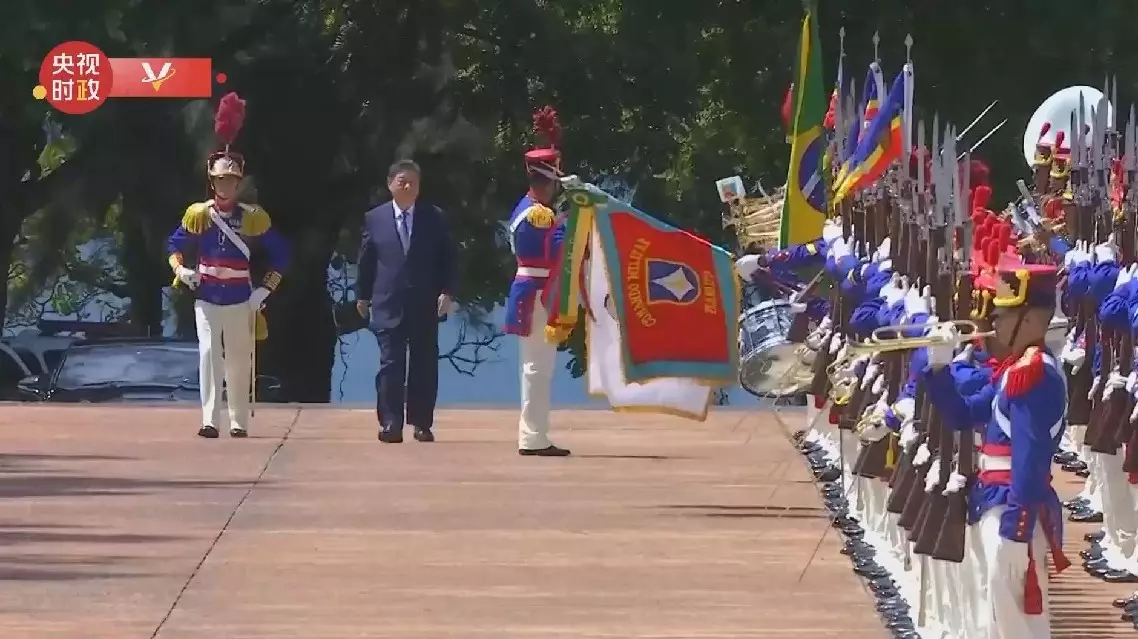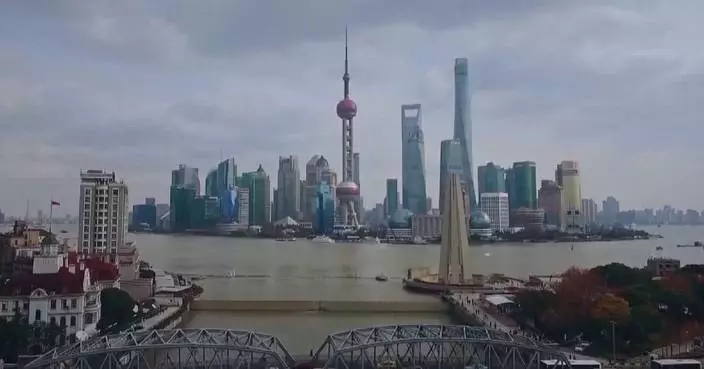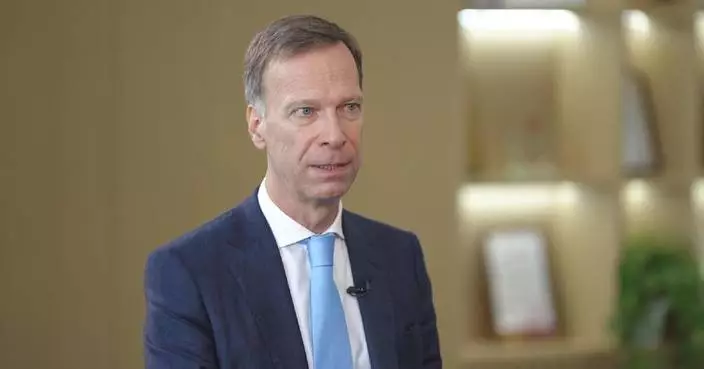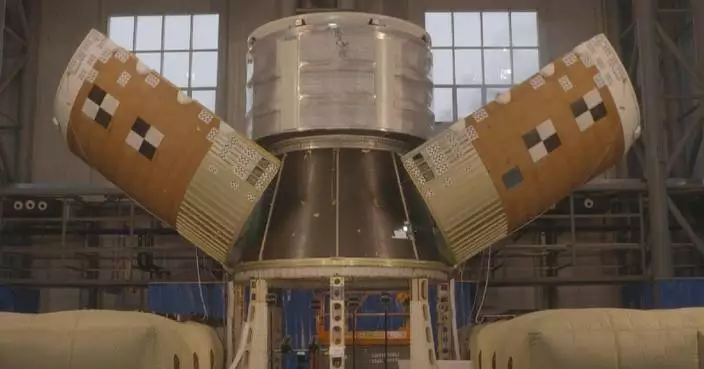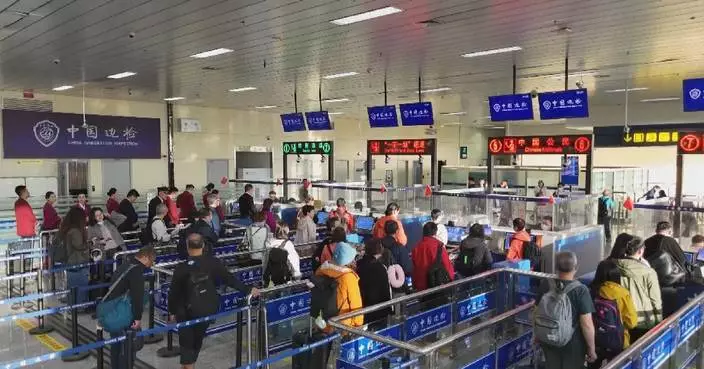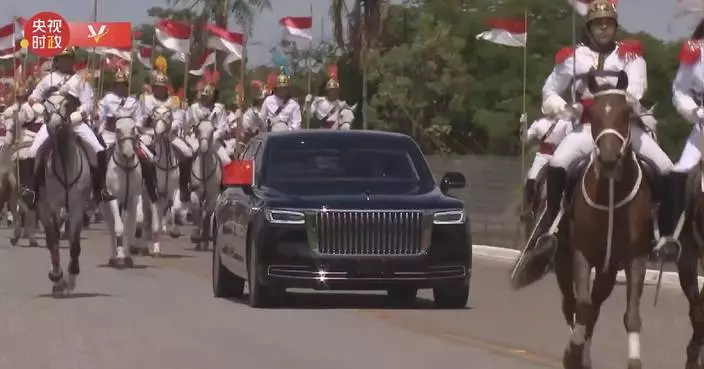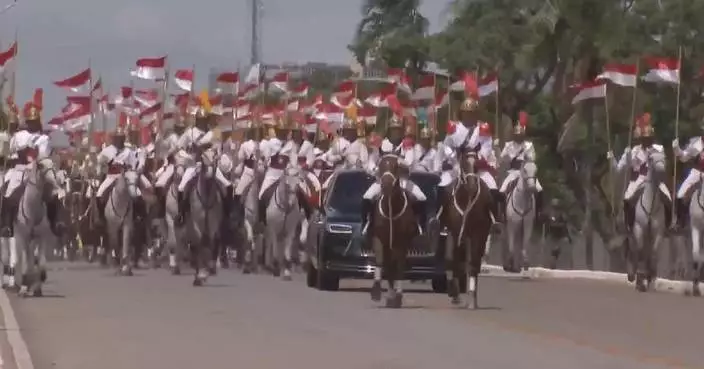Chinese President Xi Jinping's pursuit of modernization has created a new development path for beautiful villages by transforming a once-isolated ancient river town into not only a popular tourist destination, but an international town where "the charm of culture" and "the brilliance of technology" shine together.
The 1,300-year-old water town, Wuzhen, is a picturesque ancient river town in east China's Zhejiang Province. It's known for its extensive network of rivers, traditional architecture, mouthwatering cuisine, and cultural fusion.
Wuzhen was rarely associated with "modernization" in any comprehensive way for a period of time, when many people still lived in old villages in their old lifestyles.
"This is called a rowboat. It's a mode of transportation passed down from our ancestors. Whatever goods we had to sell in the town, we would row this boat to get there," said a rowboat boatman. Amid the sound of oars paddling, the crisscrossing thousand-year-old waterways have nourished the generations of people living in Wuzhen.
"Like many other ancient river towns in the Jiangnan region, Wuzhen thrived because of its well-developed water routes. However, with changes in transportation and production methods, many of the residents who used to live here for a long time left Wuzhen. There's an old saying in Tongxiang City: 'you always have bumpy rides in Wuzhen', meaning the infrastructure then in Wuzhen was very backward. Wuzhen finally became a dull river town," said Chen Xianghong, then-director of the Wuzhen Ancient Town Conservation and Tourism Development Committee.
This situation, however, began to change in June 2003 with the implementation of Zhejiang's Green Rural Revival Program, which plans to renovate about 10,000 incorporated villages and transform about 1,000 central villages among them into examples of moderate prosperity in all respects.
Xi Jinping, then secretary of the Zhejiang Provincial Committee of the Communist Party of China, promoted and deployed this modernization project to address the problem of imbalanced urban-rural development, creating a new development path for beautiful villages.
Also in 2003, the conservation and development of Wuzhen's Xizha area entered a critical phase. At that time, the development philosophy of "preserving and re-utilizing historic districts" faced much skepticism. As the last town in Tongxiang to be connected to a highway, many locals longed for the convenience of big city life.
Some argued that turning cement roads back into stone-paved streets would affect daily life and travel, while others even believed that so-called historical heritage was outdated, a relic of old thinking, with no significance.
"There were different opinions and heated debates at the time. Many people expressed a lack of confidence in the outcome of such conservation and re-utilization efforts," said Chen.
In 2005, Xi visited Wuzhen, and the inspection tour changed the fate of the small town.
"On Aug 3, 2005, Xi came to Wuzhen to inspect the protection and development of the ancient town. Summers in the south are scorching, where walking just ten meters would leave you sweating profusely. Despite that, Xi was incredibly thorough during this inspection, asking questions for nearly three hours, covering every detail. He was particularly concerned about the renovation of the old houses along the streets and showed great interest in the restoration of ancient buildings, asking me many professional questions," said Chen.
Following the inspection, Xi made three immediate recommendations: Respect Wuzhen's historical heritage and restore it to its original state; improve the environment, especially the water quality; and, innovate traditional culture by infusing it with modern elements that appeal to younger generations. "Before leaving, Xi specifically instructed us to speed up the construction and renovation work," said Chen.
Xi's visit to Wuzhen laid the foundation for the transformation and rebirth of this thousand-year-old town.
"We've been striving to realize the vision Xi laid out. It was a highly innovative approach at the time, and Wuzhen was the first ancient town to 'take the plunge'. The first step was to protect the architecture, which I refer to as the 'shell', including the streetscape. The second was to introduce new elements. While the appearance of the ancient town is historical and traditional, its functionality had to match that of a modern community. We implemented many innovations, evolving Wuzhen from a sightseeing town to a vacation destination and then to a cultural town, including launching the Wuzhen Theater Festival. Back then, the town only had 8,000 residents. Now, you can see the numbers are astounding - almost 10 million tourists visit each year to experience our 1,300-year-old river town's unique and beautiful culture," said Chen.
After years of efforts, Wuzhen's distinct charm and atmosphere transformed the once-isolated town into a popular tourist destination. In 2014, plans to host the World Internet Conference were put on the national agenda. During the preparations, expert teams searched nationwide for a town with both the international appeal of Davos and distinctive Chinese characteristics to host this global event.
Wuzhen, with its combination of millennia-old cultural heritage and modern network infrastructure, was chosen.
"As early as 2003, we laid two fiber-optic cables underground and achieved full wireless network coverage. At that time, even in Shanghai, people still needed to plug in a cable and pay to access the internet, but Wuzhen had already achieved full coverage," said Chen.
In November 2014, the first World Internet Conference was held, and it was announced that Wuzhen would be its permanent home. At the opening ceremony of the second World Internet Conference in 2015, President Xi recalled that scorching summer ten years ago.
"I worked in Zhejiang for many years and came to Wuzhen multiple times. Some say they've counted five or six visits made by me. In short, I've always liked this place. It was during the second phase of Wuzhen's renovation that I came here to help with planning and supported them in the conservation of historical buildings and tourism development. Coming back here today, everything is heartwarming and familiar to me, and yet at the same time, it's also brand new. It's been many years since I last came, and I find myself looking at the town with fresh eyes," said Xi.
"When I heard what Xi said on site, my tears rolled down without me realizing it. It's been a tough journey for Wuzhen over the years. To have the general secretary so passionately promote Wuzhen at such an international event filled me with a deep sense of pride," said Chen.
The development plan proposed by Xi back then has become the foundation for Wuzhen's growth in the future, transforming it into today's international town where "the charm of culture" and "the brilliance of technology" shine together.
"We're not just here to admire the ancient things. Wuzhen is continuously exploring the integration of technology and culture, injecting new vitality into the town," said Qiu Jianwei, executive deputy general manager of Wuzhen Cultural Co., Ltd.
"What we are trying to convey to the world is the cultural confidence of a small river town," said Chen.
The principle of success lies in keeping pace with the times. From being the last town in Tongxiang to be connected to a highway to becoming the permanent site for the World Internet Conference, this is a story of a small town's transformation, and it is also a shining example of a nation's journey towards high-quality development.

Xi Jinping's vision transforms ancient water town into a hub of innovation and culture




